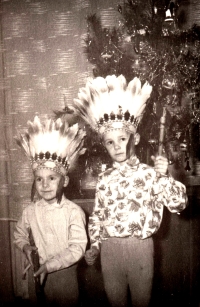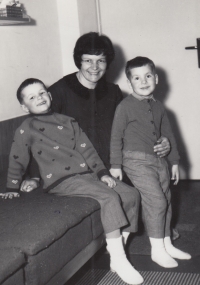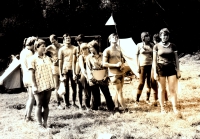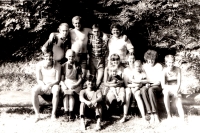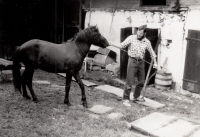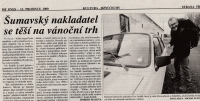When Šumava becomes home for a lumberjack
Download image
Ivo Stehlík was born on 1st April 1963 in Nové Město na Moravě and grew up in Žďár nad Sázavou. His father Jaroslav was a mechanical engineer and worked all his life in Žďár (Žďár Engineering and Foundry). His grandfather Alois made “gilding presses” for gilding books, still known as “stehlíkovky”. Mother Marie was born in Hradec near Ledec nad Sázavou, their farm was confiscated from her parents by the communists. Ivo Stehlík graduated from the Mining University in Ostrava, majoring in geology. After school, he worked briefly at the Institute of Mineral Resources in Kutná Hora, then did his military service at a missile base near Dobříš. In 1988, he moved to Volary to join his wife Jitka, and started working as a woodcutter. In Volary he met local opponents of the communist regime, Miroslav Crha and the twins František and Ondřej Klišík. He founded and led the Civic Forum in the Prachatice forestry plant. After the first free elections, he was vice-mayor of Volary and helped to promote the establishment of the Šumava National Park. Later he returned from the townhall back to the forest as a lumberjack. In 1999, he published his Lumberjack Fairy Tales, stopped being a lumberjack, and became a publisher and book distributor. Among other things, he also published a book of interviews he conducted with supporters of the national park, called My Home Šumava.
